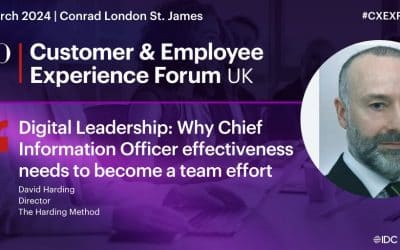Whilst our survey is still open, we’d thought we’d take a first forage into some of the trends we’re starting to see.
Our overall question is based around CIO effectiveness.
In our work with CIOs, we have found that nearly all current CIO performance measures fall into one of two categories:
- They are at firm level (i.e. revenue/ cost/ service level related) and as such its nearly impossible to claim that the activities or capabilities of any one individual can directly account for changing these (there are nearly infinite numbers of other impacting factors); and or
- They are largely subjective and are in the ‘eye of the beholder’
To address this, we’ve developed a new measure of CIO ‘performance,’ that is, CIO effectiveness*, which we define as the:
‘Extent to which what CIOs actually do matches with what they are supposed to do’
This deceptively simple statement enables us to understand (and address), two key questions
- Who has a relevant expectation of the CIO? And
- What do they expect?


From our current sample of 140 CIO stakeholders, from across a range of countries, industries, and company sizes we have found some agreement that CIOs are expected to display behaviours associated with ‘Change’ and ‘Relationships.’ Interestingly, there appears to be a low expectation that CIOs should focus on relatively ‘non-technical tasks.’ Surprisingly, there also seems to be little expectation for CIOs to focus on developing and then disseminating knowledge (through external monitoring behaviours). Perhaps the biggest surprise is that (from our sample) there is no expectation for CIOs to focus on relatively ‘technical tasks’.
In terms of who expects what? It seems that those who have CIOs as their subordinates are firm in their belief that they ‘only’ expect their CIOs to focus on change and relationships (and nothing else), whilst CIO peers expect a broader range of behaviours (across all four of our major behavioural groups). The implication of this is interesting for CIOs.
As a CIO, who’s expectations should you meet? Those of your boss…or those of everyone else? After all, who is most critical to your longer-term career?
If our work impacts you, and you have 15 minutes to spare, please contribute to our survey at: https://thehardingmethod.org/cio-effectiveness-survey
* This is derived from studies by Hales, 1986, and we will expand on some of the implications of this in subsequent articles. Perceptions of effectiveness is one thing but addressing shortfalls in it are quite another!





0 Comments